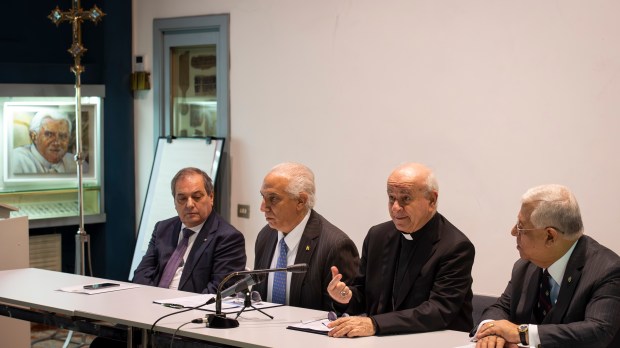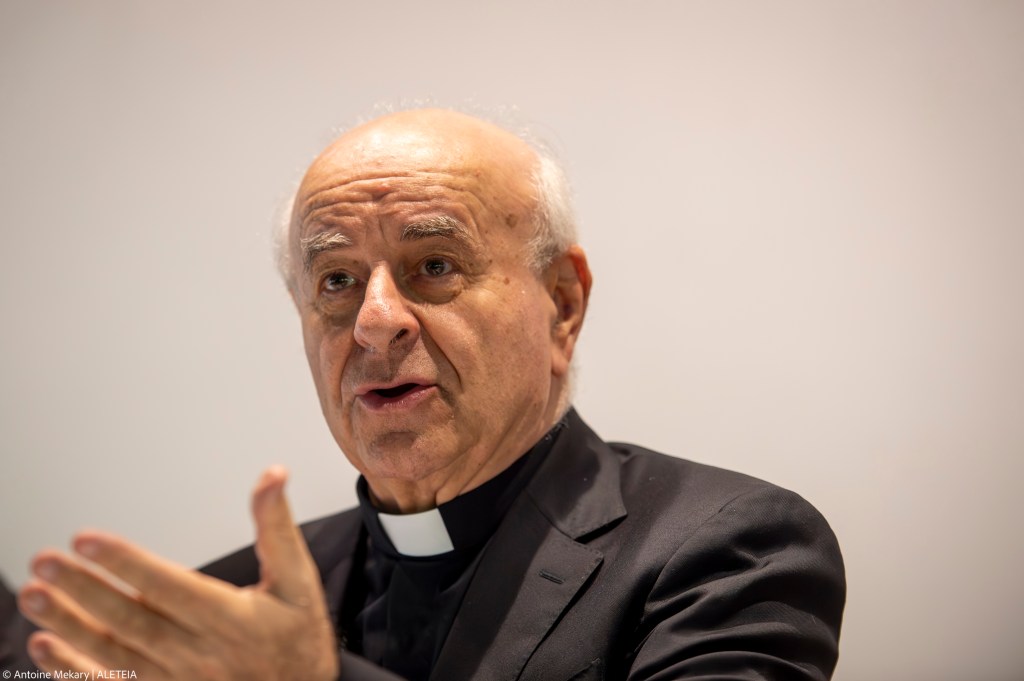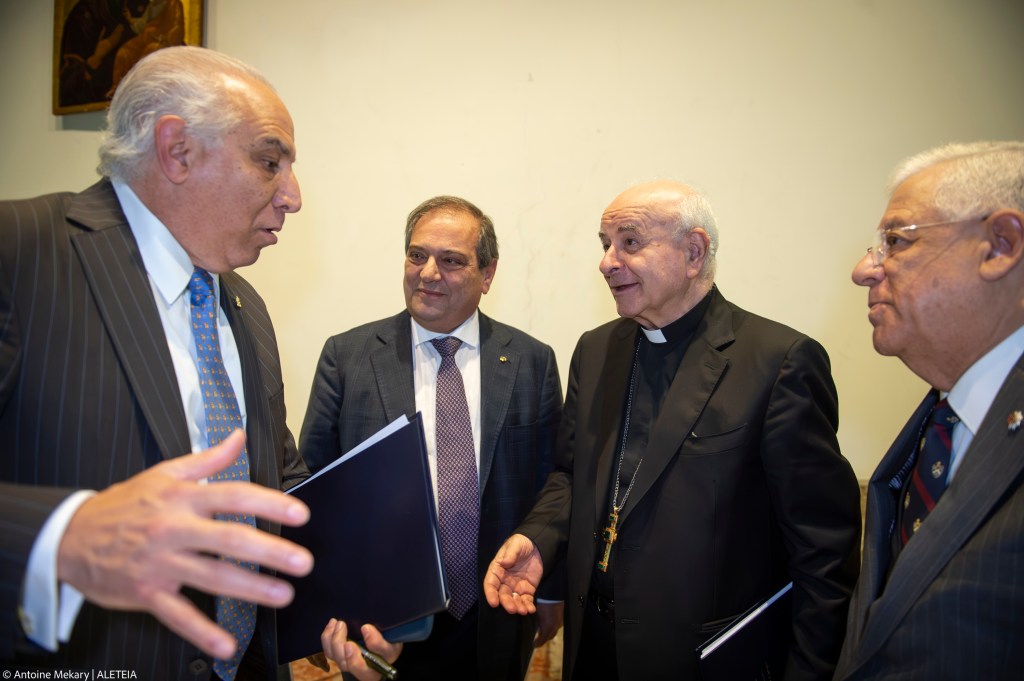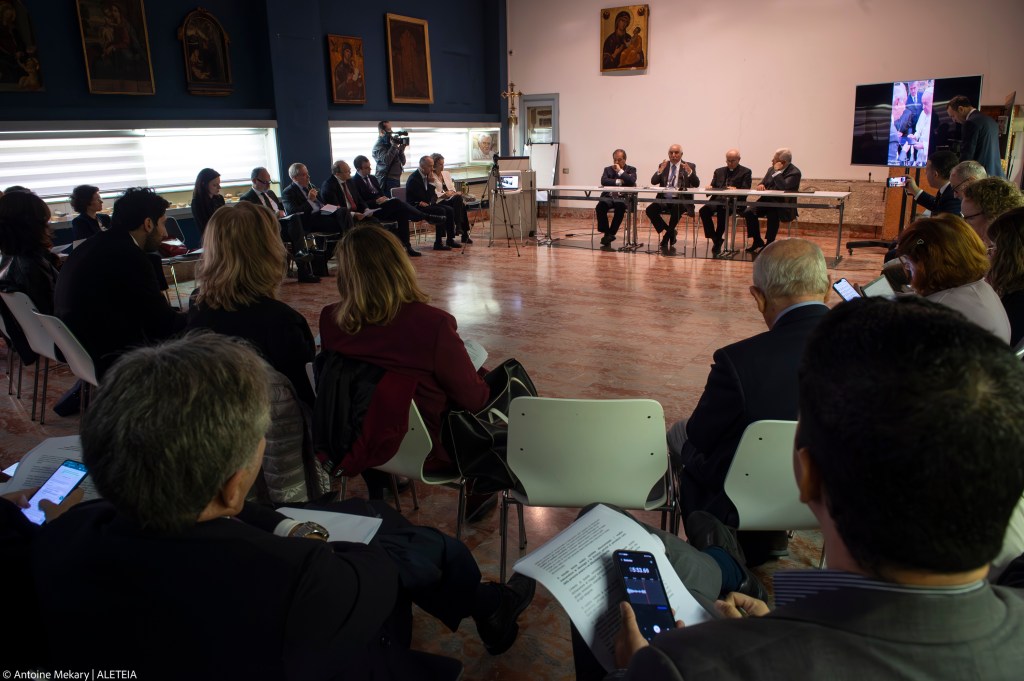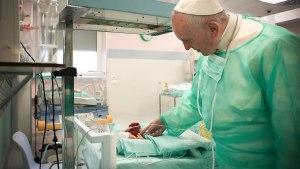The Vatican’s Pontifical Academy for Life has joined a campaign to rediscover the importance of the family doctor, and the value of having close relations between healthcare professionals and their patients. Launched by SOMOS Community Care, a network of doctors serving underprivileged communities in New York City, on November 11, 2023, the campaign is inspired by concerns that Pope Francis has repeatedly expressed in speeches.
“The figure of the family doctor has almost disappeared, and the risk is that, in order to privilege ‘excellence,’ the good quality of territorial health services is neglected,” the Pontiff said in a speech in 2022.
“The rediscovery of the relationship between doctor and patient is indispensable because it is part of the essence of medicine itself,” said Archbishop Vincenzo Paglia, the president of the Pontifical Academy for Life during the press conference presenting the campaign. “Doctors who care for men and women truly represent that experience that Jesus himself lived firsthand.”
The campaign, called “Thank you, Doctor,” includes a declaration that functions as an appeal to health systems across the world to give central importance to the patient-doctor relationship. This can help in “humanizing our societies” and avoid healthcare systems becoming “conditioned to interests other than the health and well-being of citizen,” the appeal states. During the press conference Archbishop Paglia, said Pope Francis “welcomed [the text] with great enthusiasm.”
Jesus as a doctor
As Pope Francis has done in speeches in the past, Archbishop Paglia also highlighted the need for healthcare workers to follow Jesus as an example. “Jesus himself was called a doctor,” the archbishop said. “Out of 53 miracles reported in the Gospels, 33 were for health, for healing. And all of them have been relational, either directly or through a family member.”
By highlighting the importance of relationships in healing, the President of the Pontifical Academy for Life also underlined how technological progress can’t replace people and should not be limitless. “The line that should never be crossed, is the relationship, the relations between us, the caring for each other, and this concerns the doctor and the patient,” he explained.
“This text has a big ambition: to keep our relationships in medicine human, while technology runs its course,” Archbishop Paglia stated, while emphasizing the importance of the family doctor in this process.
The family doctor as a foundation for the health system
Ramon Tallaj, the President of SOMOS, highlighted in the press conference that for him being a doctor is more than just a profession, but rather a “vocation.” He said that family doctors are important because they will focus on preventative care through the ongoing relationship, to avoid the health system only intervening when a situation has become urgent. He also reflected that family doctors usually know the medical history of their patient and their family members, from grandparents to children, which also helps build human relationships.
The CEO of SOMOS, Dr. Mario Paredes, also added that primary care physicians are a starting point for patients to access the wider health system with its specialities. They can also offer “comprehensive and continuous care” for all ages and health problems and can be more efficient and reduce costs as they have a wide-ranging background.
Studies “have shown that if you have the same family doctor for a long time you live longer and better,” said Dr. Jordi Serrano Pons, a Spanish doctor and consultant to the World Health Organization, at the press conference. “The system must help the doctor, the doctor must help the patient.”
“Jesus is a landmark in the healing of the human being, and today the primary care physician is a central figure in the medical care and humanization of every society,” Dr. Paredes concluded.
